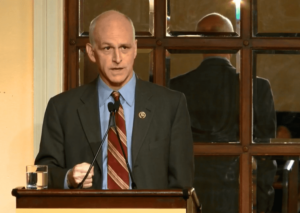
The chair of the House Armed Services Committee said Wednesday he is “unconvinced” on pursuing a deep cut to the defense budget, adding he could see a likely reduction of $10 to 20 billion in the coming years rather than a 10 to 20 percent overall cut. Rep. Adam Smith (D-Wash.) also told reporters he still has reservations over meeting the Pentagon’s calls for billions of dollars to cover industry’s COVID-related claims, adding he has concerns the money would mostly…

 By
By 











